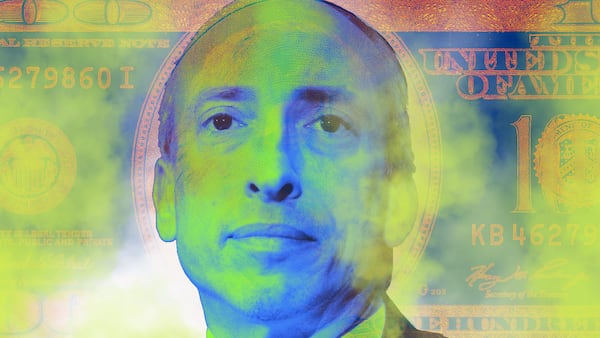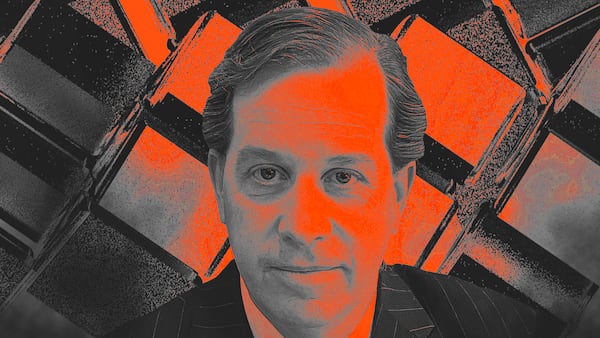It’s been called a “unmarked backdoor” attempt to regulate decentralised finance. On Friday, the Securities and Exchange Commission voted three to two to reopen comment on a controversial proposal that could sweep decentralised exchanges into the regulator’s scope.
The complicated rulemaking proposal seeks to amend the existing Regulation Alternative Trading Systems. The commission also released supplemental information on how the proposal relates to crypto assets.
Republican Commissioner Hester Peirce, who has affectionately been dubbed “Crypto Mommy” by the industry for her support, dissented from the reopened proposal during an open meeting of the SEC’s division of trading and markets, saying that it would quell innovation in digital assets.
“The release sends a message that we are uninterested in facilitating innovation and competition in financial markets and instead seek to protect incumbents,” she said.
Peirce said the reopened proposal would “force centralisation”, obligating DeFi exchanges to perform centralised exchange-like activities to comply with the new rules.
“The release fails to recognise the protections that come with decentralised open source protocols and to consider whether such protections might obviate the need for some or all protections of the securities laws,” Peirce said.
She said that the SEC has repeatedly told firms they can “just come in and register.” But so far, the agency has registered only a handful of crypto businesses.
“The commission dismisses the possibility of making practical adjustments to our registration framework to help entrepreneurs register. The commission instead rewards that good faith with enforcement action,” Peirce said.
NOW READ: ‘The Gensler era has not been easy’: Security tokens push crypto firms into long and costly SEC maze
“Today’s commission treats the notice and comment rulemaking process not as a conversation but as a threat.”
Commission Chair Gary Gensler, however, said that most crypto trading platforms meet the definition of an exchange under securities laws and therefore fall under the SEC’s authority.
“That’s the case regardless of whether they call themselves centralised or decentralised. Yet these platforms are acting as if they have a choice to comply with our laws,” Gensler said.
These platforms are acting as if they have a choice to comply with our laws.
Wider definition of exchange
The regulator proposed the Reg ATS amendments early last year. At first blush, they appear to be aimed at electronic trading in traditional finance markets, as they don’t explicitly mention crypto, DeFi, blockchain, or any related concepts.
However, lawyers told DL News in January, if finalised as proposed, the amendments would widen the definition of “exchange” under US law, dragging decentralised exchanges — kicking and screaming — under the purview of the SEC.
Peirce has called the Reg ATS amendments an “unmarked backdoor” attempt by the commission to draw DEXs into the agency’s scope.
NOW READ: The obscure SEC rule that critics worry is a backdoor attempt to regulate DeFi
The amendments have proven controversial among a range of market participants — including crypto investors — and attracted scores of comment letters. These commenters said the proposal’s definition of exchange was far too broad and the commission hadn’t properly considered its wide-ranging potential impacts.
As well as their objections to the amendments themselves, respondents complained that the over 600-page proposal document was extremely long and complicated to properly review in the 60-day deadline first given.
The commission usually provides 90-day comment periods for very complicated rule proposals, respondents lamented to the SEC.
Drawing DeFi into scope
For DeFi players specifically, the proposals are controversial because they could draw businesses like Uniswap Labs under the umbrella of SEC oversight.
If finalised, the proposal would update a set of rules that regulate dark pools in the US. Dark pools are exchanges where institutional investors like investment banks can buy and sell bonds or stocks.
US dark pools must register as broker dealers under Reg ATS. The DeFi industry fears that with the proposed updates to the regulation, the SEC appears to be trying to get decentralised exchanges to register as broker dealers and therefore come under its authority.
The challenge in regulating DeFi, however, is that existing securities laws inherently regulate intermediaries. DeFi protocols, as open-source suites of protocols, sometimes managed by decentralised autonomous organisations, don’t present obvious intermediaries to regulate.
The SEC’s solution to this dilemma is apparently to attempt to draw into its scope companies like Uniswap Labs that provide the front ends for users wishing to engage with the underlying smart contracts.
The proposal seems to be trying to do this by expanding the definition of exchange to one that would capture DeFi projects.



